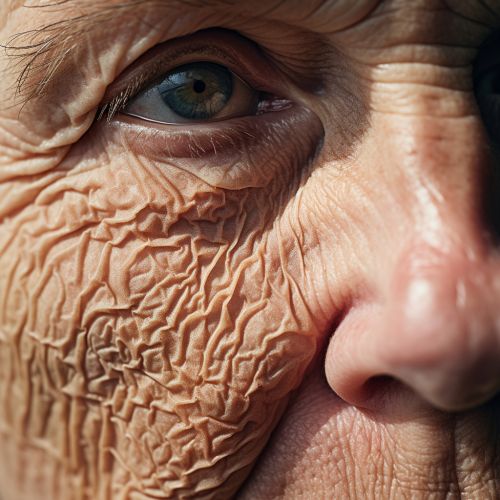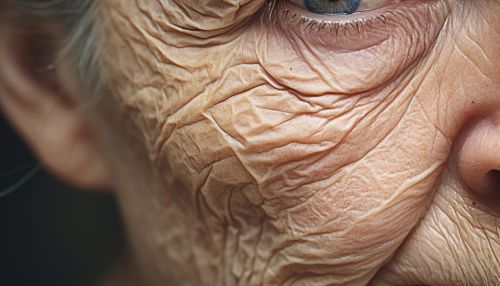Premature Skin Aging
Introduction
Premature skin aging, also known as photoaging, is a complex biological process characterized by the acceleration of intrinsic aging primarily due to the harmful effects of chronic sun exposure and environmental factors. This process can lead to a variety of skin changes including wrinkles, rough texture, uneven skin tone, and loss of elasticity.
Causes of Premature Skin Aging
The primary cause of premature skin aging is exposure to ultraviolet (UV) radiation from the sun. However, other environmental factors such as pollution, smoking, and poor nutrition can also contribute to this process.
Sun Exposure
Chronic exposure to the sun's UV rays is the most significant cause of premature skin aging. UV radiation penetrates the skin and damages the underlying collagen and elastin fibers, leading to the formation of wrinkles and sagging skin. In addition, UV radiation can cause DNA damage in skin cells, which can lead to the development of skin cancer.
Environmental Factors
Environmental factors such as air pollution and smoking can also accelerate skin aging. These factors can generate free radicals, unstable molecules that can damage skin cells and contribute to the aging process. In addition, smoking can constrict blood vessels in the skin, reducing blood flow and depriving the skin of oxygen and essential nutrients.
Poor Nutrition
Poor nutrition can also contribute to premature skin aging. Diets high in sugar and processed foods can lead to inflammation and oxidative stress, which can damage skin cells and accelerate the aging process. On the other hand, a diet rich in antioxidants, such as fruits and vegetables, can help protect the skin from damage and slow down the aging process.
Signs and Symptoms of Premature Skin Aging
The signs and symptoms of premature skin aging can vary from person to person, but they typically include the following:
- Wrinkles and fine lines
- Loss of skin elasticity
- Rough, dry skin
- Uneven skin tone
- Visible blood vessels
- Age spots
Prevention and Treatment of Premature Skin Aging
While premature skin aging cannot be completely prevented, there are several strategies that can help slow down the process and reduce the appearance of aging signs.
Sun Protection
The most effective way to prevent premature skin aging is to protect the skin from the sun. This can be achieved by wearing protective clothing, using a broad-spectrum sunscreen with a sun protection factor (SPF) of at least 30, and avoiding sun exposure during peak UV radiation hours (10 a.m. to 4 p.m.).
Healthy Lifestyle
Adopting a healthy lifestyle can also help prevent premature skin aging. This includes eating a balanced diet rich in antioxidants, exercising regularly, getting enough sleep, and avoiding smoking and excessive alcohol consumption.
Skin Care
Proper skin care is essential for preventing and treating premature skin aging. This includes cleansing the skin daily, using a moisturizer to keep the skin hydrated, and using anti-aging products that contain ingredients such as retinoids, antioxidants, and peptides, which can help stimulate collagen production and reduce the appearance of wrinkles.
See Also


